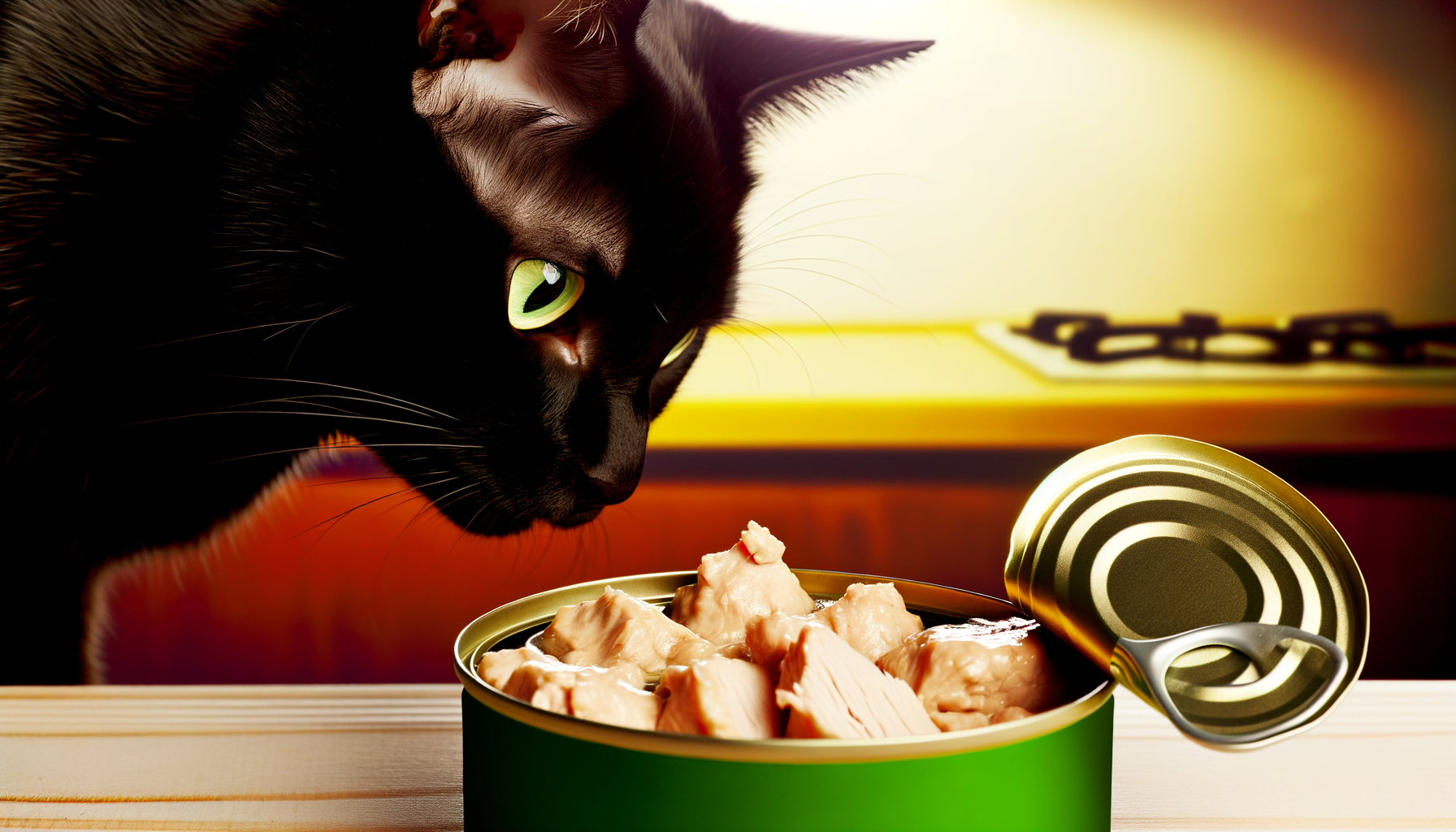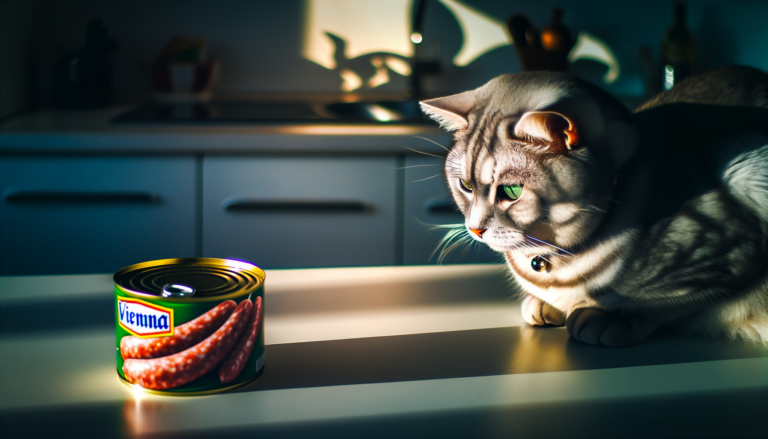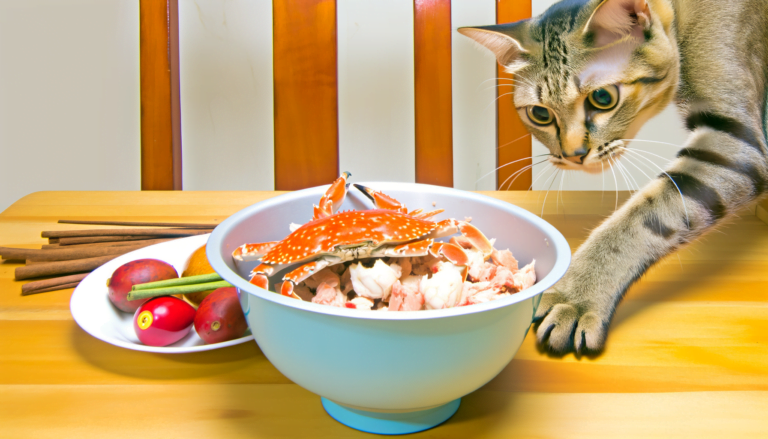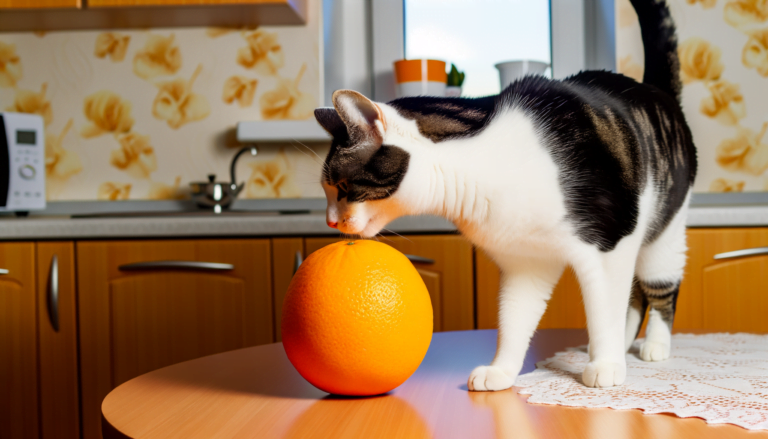Unveiling the Mystery: Can Cats Safely Enjoy Canned Chicken?
Indeed, cats can partake in canned chicken, given it is devoid of seasonings, especially onion and garlic, which are toxic to our feline friends. The chicken should be served in moderate portions to complement their regular cat food, rather than replace it completely. This offers a healthy protein addition to their diet but remember, it is crucial to maintain a balanced diet for your cat that is primarily constituted of food specifically designed for them.
The Impact of Human Food on Cats
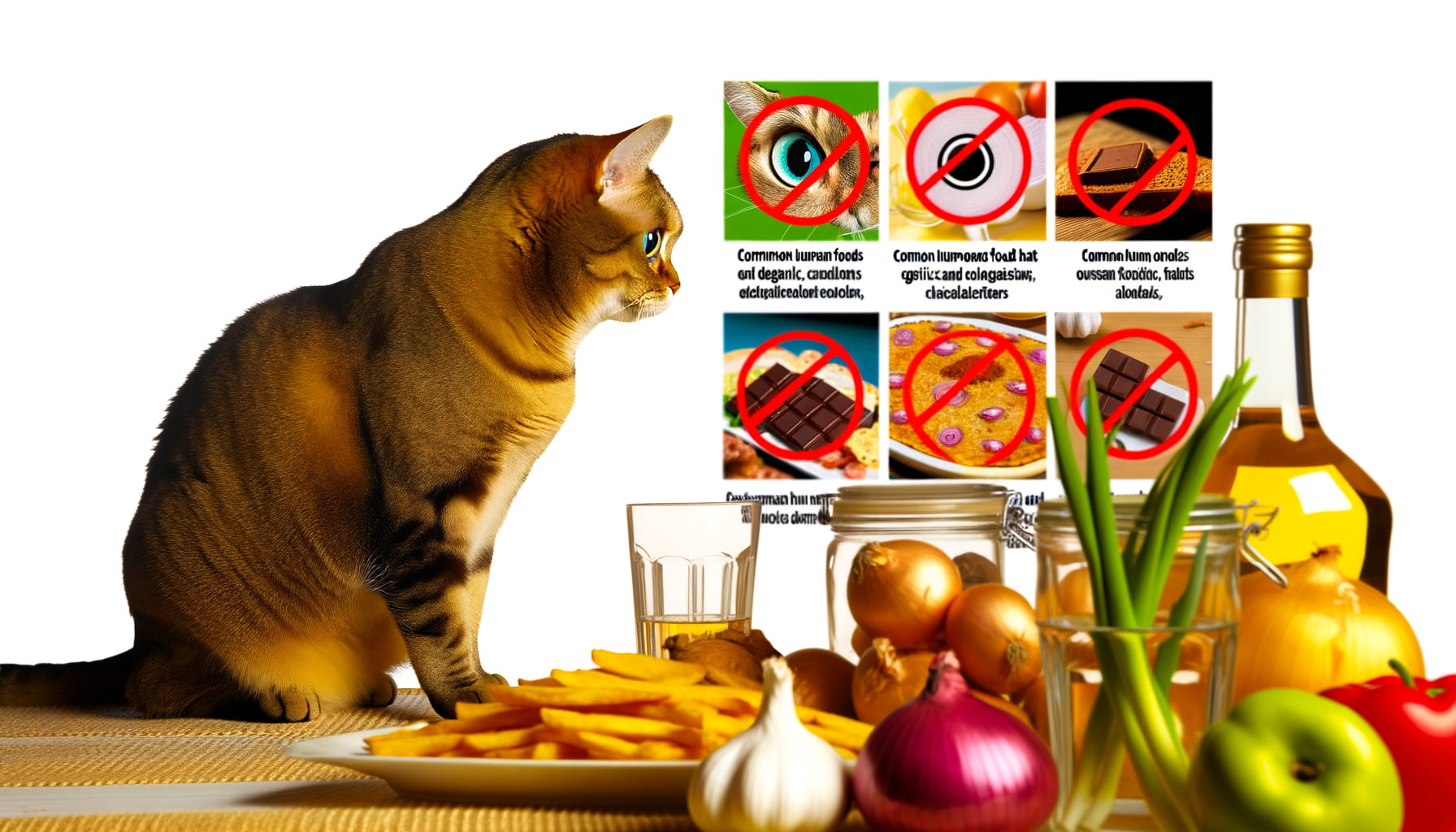
When considering the influence of human food on felines, it’s essential to understand that our dietary habits don’t always complement theirs. Cats, contrary to humans, require a diet primarily composed of meat. This necessity is down to their classification as obligate carnivores. Thus, any human food incorporated into their meal should be cautiously evaluated for nutritional content and potential harm.
Often, human food comes laden with additives and preservatives that prove detrimental to a cat’s health. Ingredients such as garlic, onions, and certain spices, all common in our meals, can be highly toxic for them. Besides, human food often contains higher quantities of carbohydrates than a cat’s system can effectively process. This overload can lead to obesity and other correlated health issues such as diabetes in the long run.
Furthermore, not all meats suitable for humans meet the dietary needs of cats. Cooked meats lose many nutrients during the cooking process. Meanwhile, raw meats carry the risk of bacterial infections. Therefore, while cats may seem to enjoy human food, the question remains — is it truly benefiting their health, or inadvertently causing harm? By understanding these concerns, we can more responsibly consider human-grade canned chicken from a feline health perspective.
Evaluating Canned Chicken as a Cat Food Option

When considering canned chicken as a potential part of your feline friend’s diet, several factors come into play. First, the sodium content of most canned chicken is significantly higher than the recommended levels for cats. Excessive sodium intake can be detrimental to a cat’s health, potentially leading to dehydration or even kidney damage. However, there are low-sodium canned chicken products available, which could be a safe substitute.
Another consideration is the nutritional balance that cats require. Felines are obligate carnivores, meaning that their bodies are designed to derive optimal nutrition from animal-based proteins. While chicken provides high quality protein, canned chicken alone lacks the robust variety of nutrients, particularly taurine, an essential amino acid for cats.
Lastly, many canned chicken products contain preservatives and other additives that might not be safe for cats. While some canned chicken might be safe as an occasional treat or supplement, relying on it as a primary food source could result in nutritional imbalances or health issues. Therefore, it should be paired with a balanced cat food to cover the essential needs.
Safe Ways to Introduce Canned Chicken to Your Cat’s Diet
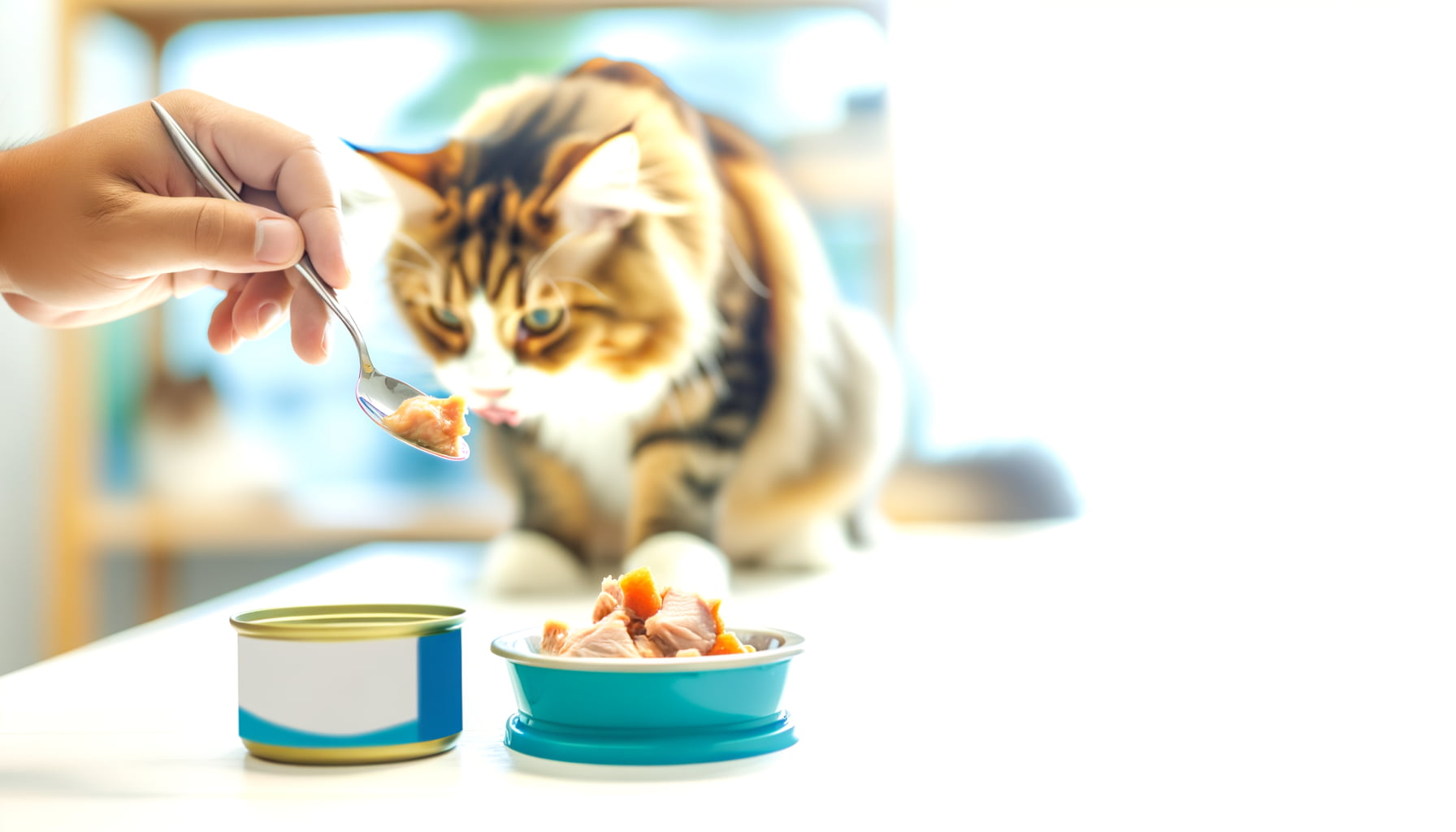
When you’re considering introducing canned chicken into your cat’s diet, it’s vital to approach the process gradually. An abrupt dietary shift could upset your feline friend’s sensitive digestive system, leading to potential health concerns. Start by supplementing your cat’s regular meal with a small proportion of canned chicken, gradually increasing the portion over a period of weeks.
Ensure that the canned chicken you’re introducing is unseasoned. Many spices and seasonings, such as garlic and onion, are harmful to cats. Additionally, the sodium levels in regular canned chicken can be excessively high for a cat’s dietary needs. Opt for a product labeled as sodium-free or low-sodium.
Finally, remember that while canned chicken can be a tasty supplement to your cat’s diet, it should not replace a complete and balanced cat food. As carnivores, cats require a variety of nutrients supplied largely by cat-specific foods, such as taurine, an essential amino acid. Providing a varied diet that balances canned chicken with specialized cat food will ensure your feline remains healthy and content.
Understanding a Cat’s Dietary Needs

Understanding a cat’s dietary needs begins with acknowledging their natural carnivorous tendencies. Cats have a physiological requirement for certain nutrients that are primarily found in meat. This includes taurine, arachidonic acid, vitamin A, and certain essential fatty acids. Deficiencies in these vital components of a cat’s diet can potentially lead to serious health complications.
When considering what to feed your cat, it’s essential to bear in mind that cats are obligate carnivores, meaning their bodies are best adapted to derive nutrition from meat sources. In the wild, a cat’s diet would consist almost entirely of small prey such as rodents and birds. They rely on a high-protein diet, with only minimal intake of carbohydrates. Therefore, their diet must be carefully balanced to ensure they receive the correct proportions of these nutrients.
This instinctual dietary need is why it’s paramount to avoid plant-based diets for cats. They lack the enzyme to convert certain plant nutrients into forms their body can utilize. Hence, even a well-intentioned vegetarian diet could leave a cat malnourished. While canned chicken could seem like a simple answer, it’s equally important to navigate the potential risks and rewards wisely.
Conclusion
In conclusion, while cats can safely enjoy canned chicken as a treat, it is important to remember that their primary diet should consist of balanced cat food to ensure they receive all the necessary nutrients. Monitoring portion sizes and consulting with a veterinarian can help ensure that your cat stays healthy and happy.
Remember to always prioritize your cat’s well-being and make informed decisions when introducing new foods into their diet. With proper care and attention, your feline friend can enjoy the occasional canned chicken treat without any harm.
